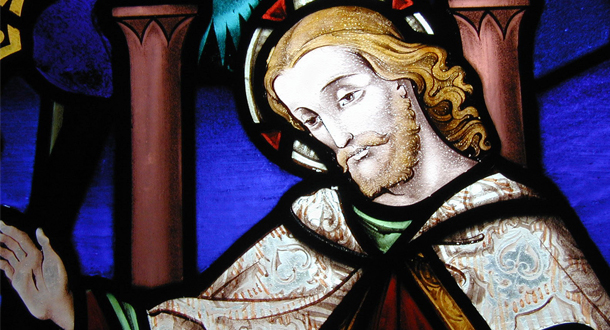 Scripture:
Scripture:
Isaiah 42:1-4, 6-7
Acts 10:34-38
Luke 3:15-16, 21-22
Reflection:
Several years ago, while on a retreat at Mater Dolorosa, Fr. Mike Higgins gave a presentation on the baptism of Jesus. His reflections in that presentation changed my frame for Jesus’ baptism. Frankly, I naively thought that Jesus chose to be baptized as an example of what we should do, and I didn’t ponder much beyond that concept. Certainly, I believe by virtue of our own baptism, just as in the case of Jesus’ baptism we hear the voice of God our Father calling us his beloved. We are all his beloved son or daughter. (v. 22)
In the scene in our Gospel from Luke we read that after all the people had been baptized…and Jesus also… as if it was an afterthought, a point to be added and not the main event sufficiently remarkable enough to open heaven. In the text we have the Trinitarian scene, Father, Son and Holy Spirit, as the people wonder if John might be the Christ. John quickly points out that he was not.
Fr. Mike invited us to imagine the scene where Jesus entered the Jordan and was baptized. John was performing a baptism of repentance, the forgiveness of sin. Imagine the pouring of water literally washed away the sin of the people. Jesus entered that same water and immersed himself completely in our sin. He enters fully and intentionally into our chaos. Might his very act of emerging from the Jordan; being fused in our humanity—our sin, be what opened the heavens and called forth the Spirit.
We hear the phrase often; Jesus took on our sin—ultimately, he carried it to the cross. Forgiven. Gone for all eternity. And God the Father blesses him and us—God our Father sees our humanity as beloved.
Now, imagine for a moment if we were to freeze the scene as Jesus emerged fully bonded with our human sin; we may even begin to identify our sin. Are we tempted to think that this is unacceptable? Does it make us too uncomfortable? Thoughts like, “he absolutely cannot take on my sin—my unforgiveable sin; I am not worthy,” begin to take shape. Further, he must not die for that sin of my brother or neighbor because that sin is simply unforgiveable.
This may feel a bit fanciful. Yet, isn’t that what we are tempted to do in our humanity as we live out our lives? Somewhere deep within, do I deny that Jesus took on all sin and obliterated it forever? With echoes affirming this concept in both the first and second readings; Isaiah’s suffering servant tells of peace, healing and justice; The Acts of the Apostles remind us that God shows no partiality and neither should we.
While I completely understand that some wounds, some places of unforgiveness, need to be worked out over a lifetime. Is it possible that when we hold unforgiveness in our hearts, either towards ourselves or others, we hold back the gift of the cross of Christ? Freely given to us and for us.
Jean Bowler is a retreatant at Mater Dolorosa Passionist Retreat Center in Sierra Madre, California, and a member of the Office of Mission Effectiveness Board of Holy Cross Province.
